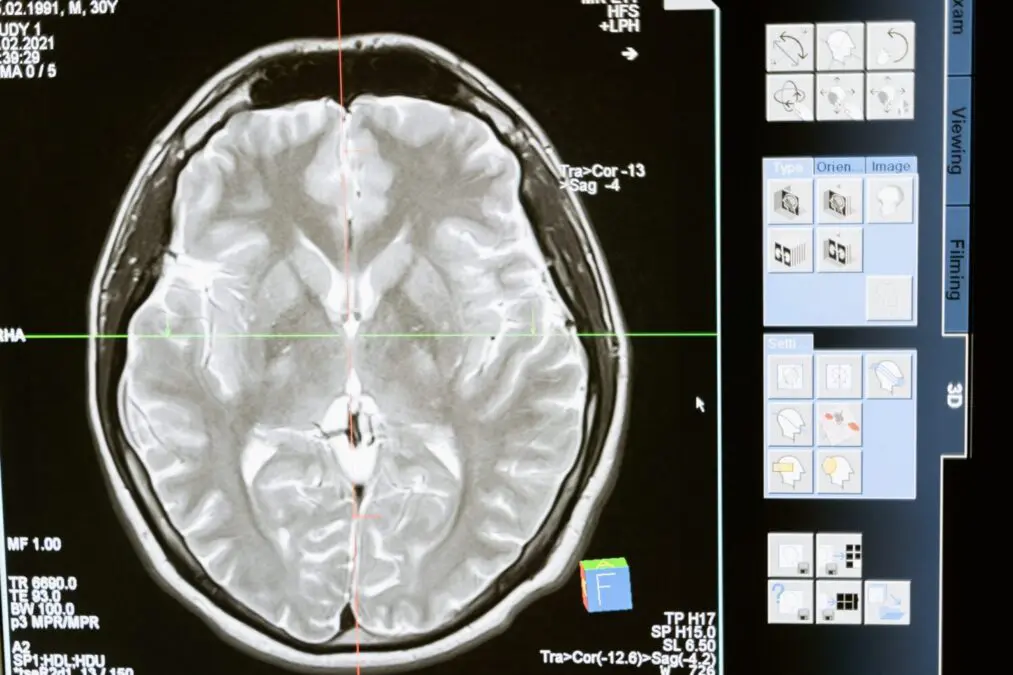One of the favorite topics of many writers and screenwriters of science fiction films is that of the vast possibilities of the human brain. Especially popular is the claim that we use only 10% of its capabilities, and if we could “unlock” the remaining 90%, it would turn us into real superheroes. As appealing as this idea is, scientists note that it is nothing more than a widespread delusion. According to them, the human brain functions at full speed almost continuously.
The tireless brain
The claim that we use only a small part of our brain’s capabilities has nothing to do with the truth. This was stated by Prof. Craig Bailey from the Department of Biomedicine at the University of Guelph, Ontario.
“It is not serious to claim that we only use 10% of our brain. The truth is that a healthy person uses his full capacity. Of course, it doesn’t function at 100% all the time,” he emphasizes.
Lawrence Ward, a professor of psychology at the University of British Columbia, agrees.
“The brain and its networks are constantly active, whether we are awake, asleep or unconscious. While the brain is alive, that is. while there is metabolic activity, it cannot “rest”. From this point of view, it is not only false, but even pointless to claim that we use only 10% of it,” he added.
“We know that basic communication cells, called neurons, fire at different frequencies as they work. We also know that certain areas of the brain play an important role in performing specific tasks, such as thinking, moving or storing memories. Depending on what we are doing at any given time, some neurons may be more active than others. However, the results of all the research carried out so far show unequivocally that we use our whole brain,” notes Prof. Bailey.
“The questionable 10% is a myth that Hollywood loves. My guess is that most people have seen at least one movie that deals with the subject in question. This is not particularly surprising – the idea that an ordinary person can become a superhero who performs incredible feats with the power of his mind (as in the Marvel universe) is very attractive. However, it is only a fantasy. However, I do not rule out the possibility that at least some of it will come true one day, especially given how fast technology is developing,” adds Prof. Ward.
The opinion of scientists
What, in fact, is due to the conviction of scientists that we do not use only 10% of our brain? First of all, if this were true, most brain injuries and diseases would not have serious consequences because they would affect parts of it that do nothing. Furthermore, natural selection does not encourage the development of useless anatomical structures. Put another way, our distant ancestors would not have needed a large brain to survive and cope with the challenges they faced on a daily basis. Instead, in the course of evolution, they would have acquired a more resistant immune system, stronger muscles or thicker hair.
There is other irrefutable evidence. Using methods such as positron emission tomography and functional magnetic resonance imaging, doctors and scientists can map brain activity in real time. The data clearly show that large areas of the brain – well in excess of 10% – are used for all sorts of activities. Among them are both seemingly simple actions – such as resting or looking at pictures, as well as more complex – such as reading or solving mathematical problems. Experts have yet to discover an area of the brain that does nothing.
And what is the origin of the myth that we only use 10% of our brain? Historians note that most often it is incorrectly attributed to the 19th century psychologist William James. He assumed that we use a small fraction of our mental potential, but he never specified an exact percentage. Albert Einstein is also cited as the author of this idea, but there is no evidence that he ever stated anything like this. In fact, the concept of the 10 percent gained considerable popularity after it was mentioned in American author Dale Carnegie’s bestseller How to Win Friends and Influence Others, published in 1936.
The information that floods us
When it comes to brain activity, there are different aspects that need to be considered separately, notes Prof Ward. One of them is memory. “We can always store more information, learn more new things, accumulate more impressions, all of which will be turned into memories. In practice, however, there are mechanisms by which the brain removes some of them to avoid overload. This is an extremely important balance,” he emphasizes.
While we are awake, our senses are bombarded with vast amounts of information. “Selective attention keeps this information flow down to levels we can handle without our brains ‘overheating.’ I suppose from this perspective it is possible to process more information, but it is still not clear how we can achieve this. Even in this regard, however, the 10 percent idea is flawed. We process a very small part of the information that floods us daily, but nevertheless the amount is staggering,” adds the expert.
“We should also not forget about our ability to solve problems. Some of us are very good at it, some not so good. We can safely say that we as a species have existed for tens of thousands of years, which means that we cope with this task relatively well. There’s no denying that there’s always room for improvement—in an ideal world, every average person would possess the intelligence of some of the greatest geniuses ever born. That would certainly be wonderful. Still, 10 percent is an absurd figure,” concludes Prof. Ward.
Illustrative Photo by MART PRODUCTION: https://www.pexels.com/photo/technology-computer-head-health-7089020/







